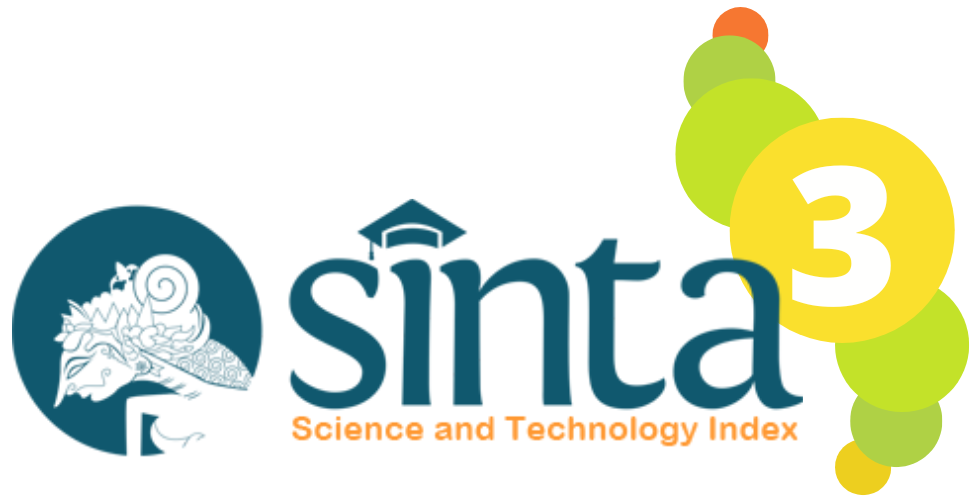Hubungan Efikasi Diri dan Motivasi Belajar Dengan Hasil Belajar Biologi Peserta Didik di SMA Negeri 1 Kecamatan Komodo Kabupaten Manggarai Barat
Sari
This research aims to determine the relationship between self-efficacy and learning motivation with the biology learning outcomes of science class students at Komodo State High School. This type of ex-post facto research is quantitative descriptive. The independent variables in this research are self-efficacy (X1), learning motivation (X2) while the dependent variable is learning outcomes (Y). The sample for this research was 206 students in class X and XI Science at SMA Negeri 1 Komodo using a supportive random sampling technique. This research was conducted in August - September 2024. Research data was obtained using self-efficacy and learning motivation questionnaires. The data analysis technique is analysis (descriptive statistics) with the help of the SPSS (Statistical Package for Social Science) version 25 for Windows program. Based on the results of inferential statistical analysis, a significance value of 0.000 <0.05 was obtained. It can be concluded that self-efficacy and learning motivation have a positive and significant relationship to the biology learning outcomes of students in classes X and XI Science at SMA Negeri 1 Komodo.
Kata Kunci
Teks Lengkap:
PDFReferensi
Adnyana, I. M. P. (2023). Pengaruh Efikasi Diri Dan Motivasi Belajar terhadap Kemandirian Belajar (Studi Kasus Mahasiswa STABN Sriwijaya Tangerang Banten). JIM: Jurnal Ilmiah Mahasiswa Pendidikan Sejarah, 8(4), 5457-5468. https://doi.org/10.24815/jimps. v8i4.28104
Arifa N.A.U.S Prayitno 2019. Peningkatan Kualitas Pendidikan : Program Pendidikan Profesi Guru Profesi Guru Prajabatan Dalam Pemenuhan Kebutuhan Guru Profesional Di Indonesia. Aspirasi: Jurnal Masalah-Masalah Sosial.
Bandura, A. (1986). Social Foundations of Thought and Action: A Social Cognitive Theory. Englewood Cliffs, NJ: Prentice Hall.
Bandura, A. (1995). Self-Efficacy in Changing Societies. Cambridge University Press.
Bandura, A. (1997). Self-efficacy: The Exercise of Control. New York: W. H. Freeman and Company.
Blackwell, L. S., K. H. Trzesniewski, & C. S. Dweck. (2007). Implicit Theories of Intelligence Predict Achievement Across an Adolescent Transition: A Longitudinal Study and an Intervention. Child Development, 78(1), 246–263. https://doi.org/10.1111/j.1467-8624.2007.00995.x
Deci, E. L., & R. M. Ryan. (1985). Intrinsic Motivation and Self-Determination in Human Behavior. Plenum Press.
Deci, E. L., & R. M. Ryan. (2000). The" What" and" Why" of Goal Pursuits: Human Needs and the Self-Determination of Behavior. Psychological Inquiry, 11(4), 227–268. https://doi.org/10.1207/S15327965PLI1104_01
Hartono, H., & L. Badriyah. (2023). Pengaruh Model Pembelajaran Kooperatif Tipe Team Games Tournament terhadap Aktivitas Belajar Siswa pada Mata Pelajaran PAI. ISLAMIKA, 5(4), 1644-1657. https://doi.org/10.36088/islamika.v5i4.4008
Ihsan, I., Mustafa, I. R. H., Faradina, & Lestari, F. A. (2024). Pengaruh Kesadaran Metakognitif dan Minat Belajar Terhadap Hasil Belajar Siswa Kelas XI Ipa SMA Negeri 4 Kota Baubau. Jurnal Ilmiah Wahana Pendidikan, 10(10), 1239–1247.
Miranda, V., R. Faslah, & R. F. Rachmadania. (2022). Self-Efficacy and Achievement Motivation on Student Learning Independence. Jurnal Pendidikan Ekonomi, Perkantoran, dan Akuntansi, 3(1), 218-227. http://pub.unj.ac.id/index.php/jpepa
Nabila, A. I., R. P. D. Karyaningsih, & M. Marsofiyati. (2023). Pengaruh Konsep Diri dan Pola Asuh Orang Tua terhadap Kemandirian Belajar Mahasiswa Program Studi Pendidikan Guru Sekolah Dasar Universitas Negeri Jakarta Angkatan 2019. Berajah Journal, 3(1), 119-124.
Poteliūnienė, S., A. Emeljanovas, & G. F. L. Sánchez. (2021). Changes in the Academic Motivation and Satisfaction With Studies of Pre-Service Physical Education Teachers During the Study Period. Universitas Psychologica, 20, 1-17. https://doi.org/10.11144/Javeriana.upsy20.cams
Saputra, R. M. A., A. Hariyadi, & S. Sarjono. (2021). Pengaruh Motivasi dan Efikasi Diri terhadap Kemandirian Belajar Sistem Daring pada Siswa Kelas XII IPS SMA Negeri Kedungadem Bojonegoro. Jurnal Educatio FKIP UNMA, 7(3), 840-847. https://doi.org/10.31949/educatio.v7i3.1268
Sari, A. K., M. Muhsin, & F. Rozi. (2017). Pengaruh Motivasi, Sarana Prasarana, Efikasi Diri, dan Penyesuaian Diri terhadap Kemandirian Belajar. Economic Education Analysis Journal, 6(3), 923–935.
Solberg, V. S., J. B. Hale, P. Villareal, & J. Kavanagh. (1993). Development of the College Stress Inventory for Use with Hispanic Populations: A Confirmatory Analytic Approach. Hispanic Journal of Behavioral Sciences. 15(4), 490-497. https://doi.org/10.1177/07399863930154004
Triwiratman, A., T. Nusantara, & I. Hitipeuw. (2023). Level of Learning Independence in Elementary School Students: The Influence of Self-Efficacy, Motivation, and Peer Interaction. Didaktika: Jurnal Kependidikan, 12(4), 705-718. https://doi.org/10.58230/27454312.305
Van Dinther, M., F. Dochy, & M. Segers. (2011). Factors Affecting Students’ Self-Efficacy in Higher Education. Educational Research Review, 6(2), 95–108. https://doi.org/10.1016/j.edurev.2010.10.003
Vallerand, R. J., L. G. Pelletier, M. R. Blais, N. M. Briere, C. Senecal, & E. F. Vallieres. (1992). The Academic Motivation Scale: A measure of Intrinsic, Extrinsic, and Amotivation in Education. Educational and Psychological Measurement, 52(4), 1003-1017.
Widya, S. N., A. J. Setiyowati, & A. Atmoko. (2023). Correlation of Self Efficacy, Parental Involvement, and Self Determination With Student Learning Independence. JP (Jurnal Pendidikan): Teori dan Praktik, 8(2), 111-119. https://doi.org/10.26740/jp.v8n2.p111-119
Zimmerman, B. J. (1995). Self-efficacy and Educational Development. In A. Bandura (Ed.), Self-efficacy in Changing Societies. Cambridge: Cambridge University Press.almeri. (2019). Pendidikan Untuk Pengembangan Karakter. Journal of Chemical Information and Modeling, 53(9), 1689–1699.
DOI: https://doi.org/10.33387/j.edu.v22i2.9432
Refbacks
- Saat ini tidak ada refbacks.
| Journal Name | Jurnal Edukasi |
| Print ISSN | 1978-6115 |
| Elektronik ISSN | 2597-9213 |
| Publisher | Fakultas Keguruan dan Ilmu Pendidikan (FKIP) Universitas Khairun |
| Address | Jalan Bandara Sultan Baabullah Kampus I Unkhair, Kelurahan Akehuda, 97728 Kecamatan Kota Ternate Utara, Provinsi Maluku Utara |
| Country | Indonesia |
| j.edukasi@unkhair.ac.id / edukasi2019@gmail.com | |
| URL | https://ejournal.unkhair.ac.id/index.php/edu/index |
| DOI | http://doi.org/10.33387/edu |
Indexed By:
-----------------------------------------------------------------------------------------------------------------------------------------------------------------------------

EDUKASI is licensed under a‚ Creative Commons Attribution-NonCommercial 4.0 International License.












